The British Commonwealth, a global family of nations
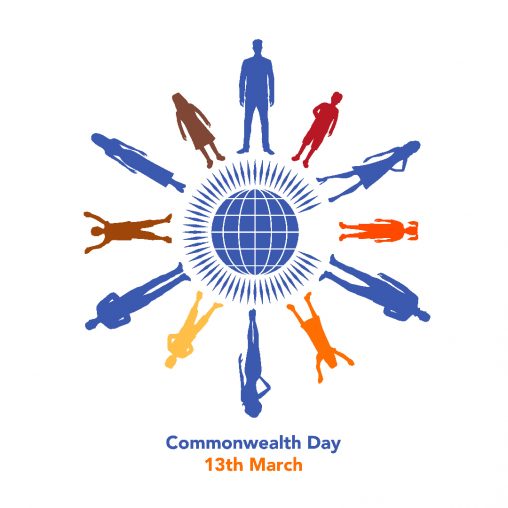
An intergovernmental organisation with its headquarters in London and 53 member states around the world, the Commonwealth of Nations is a product of Britain’s colonial past, but also one of the finest examples of international cooperation to come out of the post-colonial era.
Originally known officially as the British Commonwealth of Nations when it was first established in 1926, the current iteration of the Commonwealth traces it roots to the immediate post-war period, in 1949. However, according to its head, Queen Elizabeth II, the origins of the organisation date back to the establishment of the confederation of Canada in 1867. This is because the confederation led to the formation of Canada as an independent, self-governing state—the first of its kind within the British Empire. More would follow in the course of the 20th century, when first white settler colonies such as Australia and New Zealand achieved autonomy under the crown, and later all but a small collection of scattered islands followed the road from British rule to full statehood.
It began with the independence of India in 1947, which ushered in the transition to self-rule of African, Asian, Pacific and Caribbean states throughout the 1950s and 60s, and even into the 1970s. The British Empire was no more, but the Commonwealth of Nations was to prove not only the tool through which the process of decolonisation was conducted in a mostly orderly fashion, but also the organisation through which the longstanding connections established over the past few centuries lived on. Some of the smaller states, such as Jamaica and the Bahamas, chose to retain Queen Elizabeth as their monarchical head of state, in conjunction with full self-governance, but others severed the royal ties and became republics.
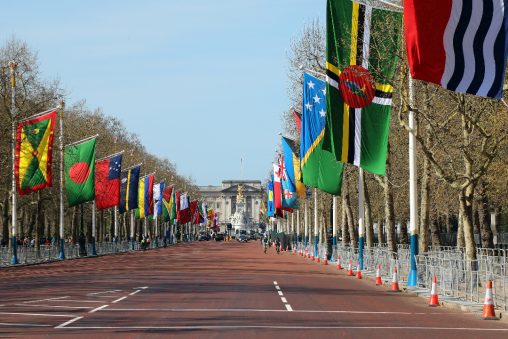
The glue that binds nations together
In spite of this, the ties that bind many of these countries to Britain have remained intact, and though this has been done through trade, diplomacy, shared security initiatives, humanitarian aid, sport and cultural exchanges, the Commonwealth has proved to be the ideal vehicle for it all. In other words, it is the glue that binds 53 states not just to their former colonial power, but also to one-another. More than that; in comprising almost 20% of the world’s land surface, and a combined population of 2.5 billion people, this is a bloc with a global presence that hasn’t weighed into major events yet – in the fashion of the USA, NATO, UN and the EU – but which has the potential to play an increasingly positive role in terms of conflict solution, economic development, trade and the spread of responsible government around the world.
In the absence of structures such as the European Union in large parts of the globe, the Commonwealth has the potential to fill a gap that could eventually lead to regional customs unions, security blocs and political approximation in different parts of Africa and Asia. Currently, a large part of the organisation’s role is somewhat symbolic, expressed mainly in cultural connections between member countries through the Commonwealth Foundation, which manages non-governmental links of this kind. Greater potential lies with the Commonwealth Secretariat, which handles inter-governmental ties and as such could possibly begin to expand its international role as new major powers such as India emerge on to the world stage.
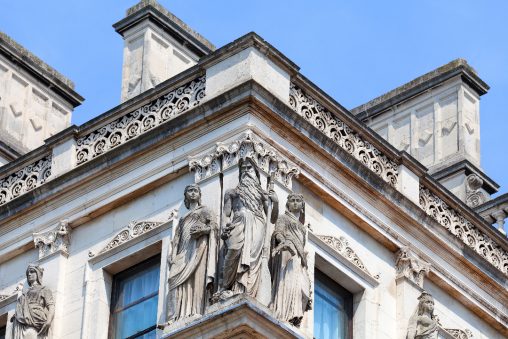
To the outside world, the British Commonwealth is still largely a quaint gathering of former British colonies that meet at diplomatic, sporting and cultural events, but for Jan Smuts, a former Boer general who fought the British and later became not only prime minister of the Union of South Africa, but also a military aide to Winston Churchill and one of the minds behind both the Commonwealth and the United Nations, it was always intended to be more than that. The brilliant South African politician was later to draft a large part of the charter of the UN, which he saw as a larger version of the Commonwealth, and the means through which to ensure peace and stability in a post-colonial world. Queen Elizabeth shared this vision, saying in 1953 that the Commonwealth represented “an entirely new conception – built on the highest qualities of the Spirit of Man: friendship, loyalty and the desire for freedom and peace.”
But such lofty ideals were largely lost along with the picture of a stable, prosperous post-war brotherhood of nations on earth driven by rationality, democracy and technological advancement. In reality, the Commonwealth could not hide the fact that Britain’s rapid decline as the former military superpower had to seek shelter within the collective security of NATO, attempt to rebuild its crumbling economy and infrastructure within the EU and eventually become the USA’s sidekick. Not only had the balance of power shifted, with the Americans in firm control – as became painfully evident during the 1956 Suez Crisis, when it ordered Britain and France out of Egypt – but the hope for peace never materialised.
In fact, from the moment the European powers left the former colonies in Africa, Asia, the Pacific and the Caribbean there has been a never-ending succession of wars, dictatorships, rebellions, civil wars and inter-tribal genocide. The former colonies soon became the impoverished Third World, run by incompetent, plundering despots who couldn’t avoid their countries and regions becoming embroiled in the Cold War chess game between Russia and America. A war that was often hot on their soil, where proxy conflicts in the ideological conflict were fought and both the communists and capitalists created new de facto colonies. As one master replaced the other, it soon became evident that the eagerly anticipated emancipation had not brought freedom, but instead repression, poverty and a collapse of the infrastructure and rule of law. Led by India, many sought refuge in the Non-Aligned Movement, but it too could provide only marginal solace.
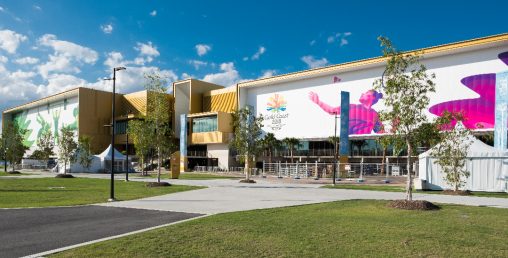
The Commonwealth of the future
The world is more unstable and antagonistic than ever, but in spite of the endless Third World conflicts and refugee streams, the Commonwealth has by and large shone as an example of a collective of often highly diverse nations that brings its members together in a spirit of cooperation. Events such as the Commonwealth Games have been largely peaceful and harmonious, and the organisation has fostered a great many inter-country initiatives, be they practical or symbolic, but it is perhaps with the rise of India as a new economic and political superpower that the Commonwealth will find renewed vigour as a tool through which to fight conflict and forge cooperation.
Together with the UK, Canada, Australia, Pakistan, Malaysia and Nigeria, to name a few, it has the potential to create at the very least pockets of collaboration and produce diplomatic initiatives through platforms such as the biennial Commonwealth Heads of Government Meeting, which brings leaders of the 53 countries together in a reasonably unique way. Such events, backed by the now well-established cultural, humanitarian, development aid and environmental frameworks of the Commonwealth, provide an important opportunity to discuss, plan and work things out. However, if the organisation is to fulfil its true potential it will have to expand its ambitions into the economic realm and be one of the catalysts that helps the creation of regional trade and economic blocks such as the EU is in Europe.
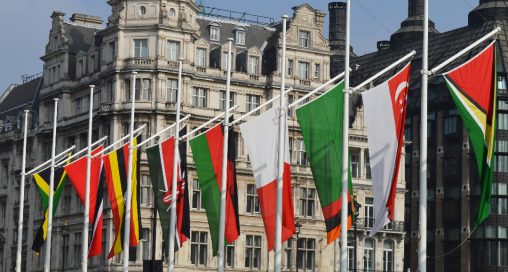
The European Union’s role was to foster closer relations and through this avoid the spectre of war, and not only has this been successful but the common market principle has also led to the kind of economic development and prosperity that can only be maintained in an environment of stability and rule of law. Any sound regional bloc, say in South East Asia or Southern Africa, would have to also include neighbouring countries that are not Commonwealth members, but its structures can along with the EU provide the perfect model for future collaboration and improved peace, stability and economic collaboration. The global free trade doctrine in which the superpowers use the rest of the world as dormant client nations threatens the creation of regional trade blocs of this kind, but as more countries become at least regional players they could perhaps escape the gravity of ambitious hyper states and hyper corporations.
In the post-Brexit era the UK has at least to an extent pushed away from the European continent that enabled it to recover from the dismal situation it found itself in during the 1970s. Britain’s new-found confidence and prosperity has led to what many describe as renewed delusions of grandeur, but the country will now more than ever look to its connections within the Commonwealth to secure trade deals as it goes it alone in a scary new world. Its ties within the Commonwealth of Nations may prove invaluable in this, though the balance of power – and therefore the negotiating position – has shifted in favour of the likes of India, Malaysia and even Canada and Australia, which will not feel the need to give anything away. Though seen by many as a largely symbolic organisation, this collective of 53 states on all the inhabited continents will prove to be important to the UK after all and may just build on its good reputation to help guide war-torn regions of the world into a brighter future.
First published in Essential Magazine












